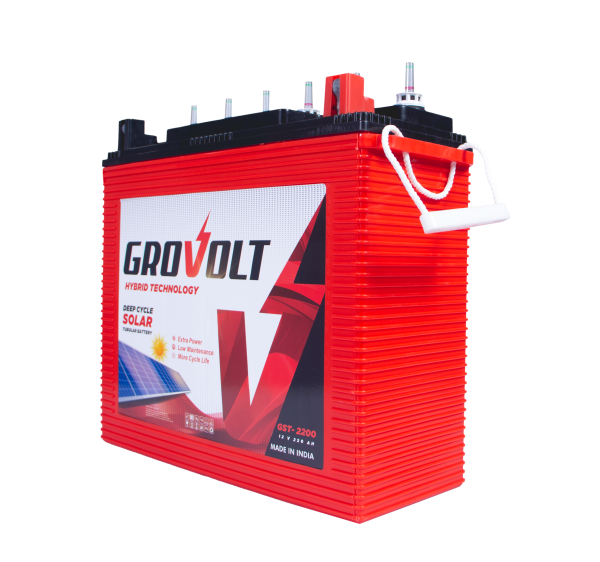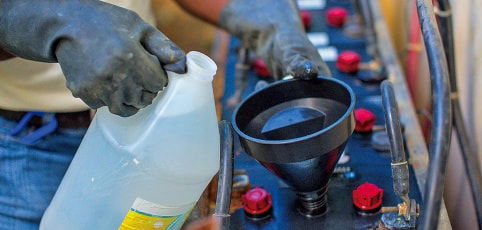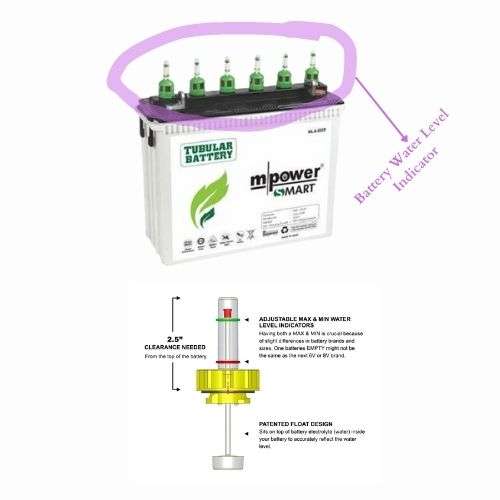Tips to maintain your Tubular Inverter Battery

How Does an Inverter Battery Work?
An inverter changes power from batteries to the kind that is used in homes. It cannot produce electricity on its own. You can save some power and use it during power outages. It helps you use appliances for up to 10 hours, but needs to be charged to store power. If not charged, it won’t work.Some things like air conditioners, refrigerators and washing machines need a special tool called an inverter to work. But even if you have a good inverter battery, it won’t last forever. With time, its efficiency goes down and it may not work well. To make sure it lasts as long as possible, it needs to be taken care of properly.
Want to keep your inverter battery in good condition? Follow these tips
1. Install in a ventilated Areas
Keep your inverter in a cool and breezy area. Don’t put it near fire, heaters, or in direct sunlight as it will get too hot. When it’s charging or on, it will get hot, so make sure it’s in a well-ventilated space to keep it safe. This will also help reduce the need to fill it with water.
2- Always Check Water level
Make sure to monitor the water level regularly. It should be above the minimum level and below the maximum level. Don’t let it go below the minimum level at any time.
3 – Topup with the right Distilled Water when due

As mentioned earlier, you can add water to the inverter from above. But, don’t use tap or RO water since it has impurities that can reduce the battery life. So, you should always use distilled water to avoid any negative impact on the battery life.
4 – Monitor the Acid Levels of your Batteries
Check the float indicators often to see how much acid is in the cells. It’s best if all the cells have the same amount of acid. Don’t let it get too full or there could be dangerous problems.

5 – Frequently Clean the Terminals
To keep your Batteries looking new, make sure to clean the connection points regularly. This will prevent the buildup of dirt and moisture.
6 – Damaged Wires
The wires connecting the battery may break, melt or get squished. This can cause a short circuit and harm you. It can also reduce the battery’s power and make it not last as long. This can affects the output of the battery and reduces the battery life in many ways
7 – Use your battery regularly
If your power goes out, you’ll need to use your home inverter. But if you haven’t had a power cut in a while, you should still discharge and recharge your inverter battery at least once a month. This will help keep it working well and ensure it provides good backup power when you need it.
8 – Check for Blocked Vents
Check your battery regularly and make sure the vents are clear. Blocked vents can cause gas to build up and the battery could burst, which is very dangerous.
9 – Know When to Change the Inverter Battery?
Devices and batteries don’t last forever, but you can use them for several hours every day. Batteries usually last 3 to 5 years, but with proper care, they can last up to 7 to 8 years. Inverter batteries may stop working if they aren’t maintained well. If your battery is completely dead or broken, you can’t fix it and will need a new one. If your battery starts leaking or there is an accident, it’s best to get a new one.An inverter battery is easily damaged, so it’s important to take good care of it. If you don’t, it could be dangerous and you might have to replace it. But if you maintain it, you can save money and time. So make sure you look after your inverter battery.